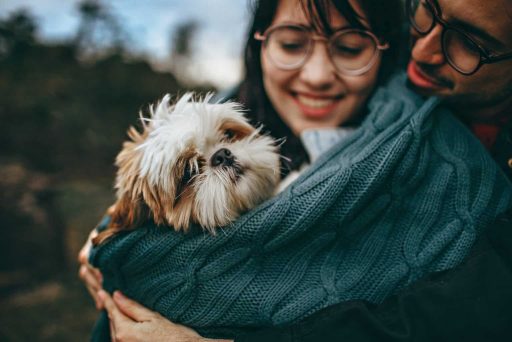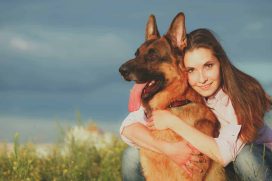So, let’s get the big question out of the way first: Do dogs bond to one person? Indeed, some dogs do bond to one person.
When you get a new dog in the family, or even if you meet a new dog – a question that might come to mind is if that dog has a favourite human. Dogs love so unconditionally that being a dog’s favourite has a way of making you feel special. This relationship may take the form of bonding, or imprinting. Bonding and imprinting are both similar processes but they occur for different reasons, and as such, have slightly different implications.
Difference between bonding vs imprinting
Bonding
Bonding occurs for a variety of reasons that include pair bonding (ie finding a mate). Bonding is a two way relationship, where there is a positive feeling each way. This can happen between intra species as well.
Imprinting
Imprinting has more of a survival base, where a puppy might imprint to a parent in order to be kept safe – following them everywhere like a shadow. It is important to note here that puppies and parents can both imprint but also have a bond.
Dogs bonding to one person
This bonding behaviour is particularly noticeable in puppies, or even in dogs that may need more emotional support or confidence. As these dogs need more support, they look more favorably at the human helping them and are more likely to create a bond with this person.
There are a few things you can do to increasing your chances of being the human that a dog would like to bond to though. In turn, this could also be used to minimise the chances of a dog bonding to just one person:
- Take turns – rather than just one person feeding, playing with and grooming the dog, take turns doing this instead. You could even hand feed the dog or play fetch to increase the chances of the dog feeling a special bond towards you.
- Increase affection – this goes without saying, pet owners already know that dogs love to be shown affection and are more than happy to show affection right back! Just like a human relationship, increasing your affection towards a dog with also increase the chance of bonding.
- Take part in activities – while taking turns is important, taking part in activities at all is also important. By this we mean that you should be involved in taking the dog out, being there when it meets new people and other dogs, and generally be involved in the life and happenings in the dog’s life.
- Be consistent – you need to make sure that everyone imposes the same rules and restrictions on the dog. This way it is clear to the dog where its place is within the family unit or the house. If you want a dog to love you more though, and perhaps even bond with you – you might want to be the one in the household that bends the rules. Keep in mind thought that the dog might start to question your authority as a result.
- Positive actions and associations – keep in mind that while dogs might act and seem almost human-like sometimes, humans and dogs are very different species. It is important to learn not to get angry at a dog, don’t punish a dog or respond harshly to its actions or disobedience. Instead, focus on positive actions and affirmations – when they do the right thing for example.
Having said all this, you also want to be somewhat mindful about your particular dog breed and how it reacts to other people it may not have a strong bond with. For example, in our article about whether the German Shepherd would bond with one person, we mentioned that it might try to protect “it’s person” even from another family member and cause stress and fear within the family.
Dogs can also get jealous sometimes, as explained in our article about whether golden retrievers get jealous. Just like German Shepherds bonding with one person, a Golden Retriever that exhibits signs of jealousy can become an issue to other family members or even other dogs. There are examples where despite Golden Retrievers being great with children, their jealousy is more over powering and leads them to do some naughty things!
Bonding is something that will happen naturally between a dog and it’s favourite humans. Keep being a responsible owner (reading Pooch Authority is a great sign!), and your dog will likely bond to your sooner rather than later.
So, do dogs have a favorite person?
Yes, some dogs do have a favourite person. The dog will show signs and behaviour that makes it clear that they have a favourite human. In some cases this bond can cause issues especially with family members and their human relationship.
Do dogs imprint on their owner?
Dogs, notably puppies, are capable of imprinting on humans. This usually happens at or after a puppy reaches seven weeks of age. This is a very important stage in the life of a companion animal like a dog as they learn how to interact with humans and the boundaries that are set based on whether they are destined for a life of a pet dog, or a slightly different life such as that of a working dog.





